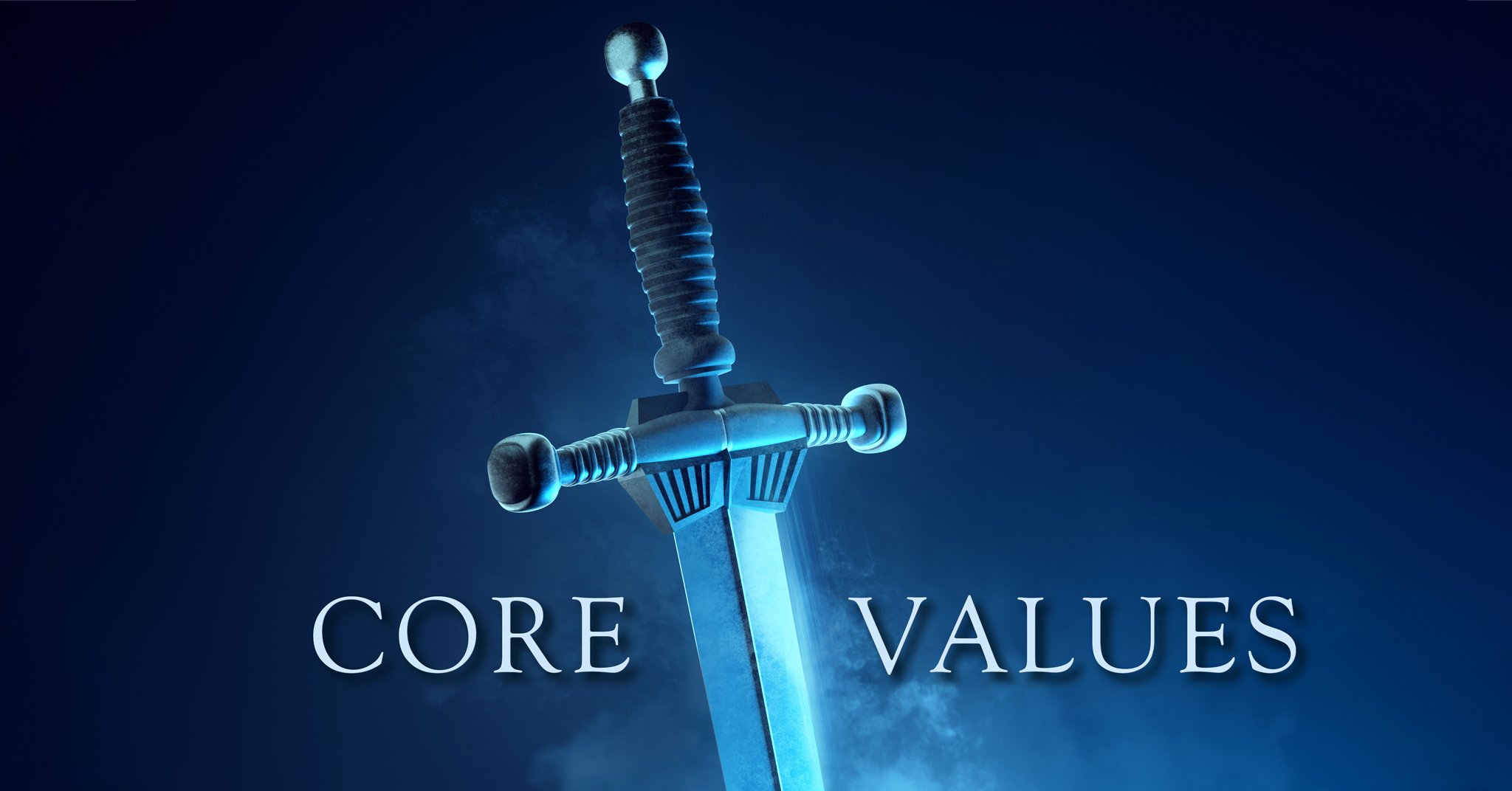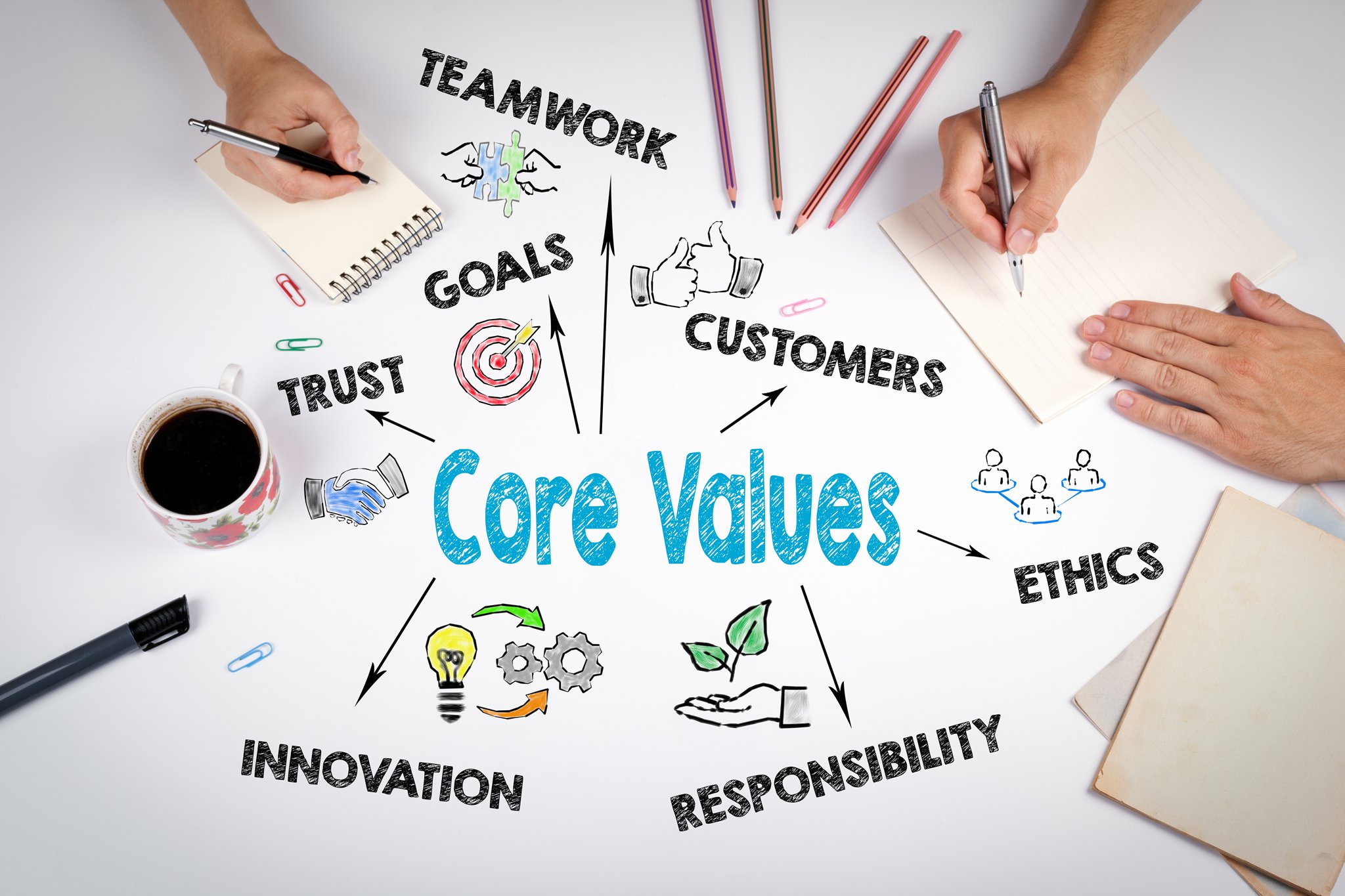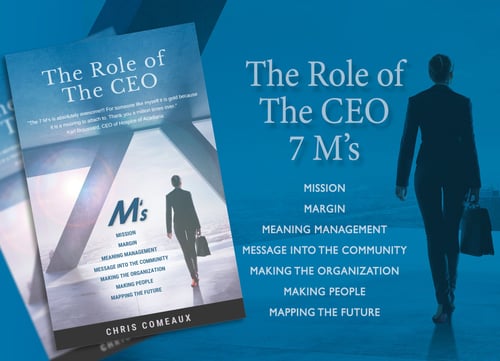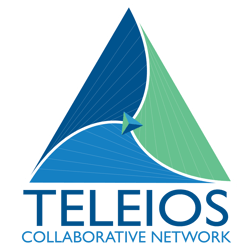

As I shared in my last blog, I have come to believe there is a 7th Fundamental that should be part of everyone’s organization system: cause and purpose. Without cause and purpose, the other elements of an organizational system are essentially null. Cause and purpose provide the basis by which the other fundamentals can be built. I shared in the post that there are several components that are helpful to think about when defining your cause and purpose: specifically, having a personal Mission Statement.
One of the most popular YouTube videos of the last several years has been (click to watch) Simon Sinek’s “The Golden Circle,“ in this video, he discusses how great companies inspire others to action by understanding their “Why.” Understanding your “Why” is another way of understanding your Mission Statement. Your “Why” is your True North.Breaking Good: Defining Cause and Purpose
There are three other major components that help you identify your cause and purpose: core values, roles, and vision. Today we will discuss the importance of core values.
Defining Moments
In a previous blog post titled “The Interview”, I shared the story of how I was led to Four Seasons. I’d like to share a bit more background that directly relates to the importance of core values both personally and organizationally.

My family and I made the journey from Florida to North Carolina. Moving to the mountains of western North Carolina was such a change. I remember talking to new family friends about how, each weekend, we were finding new waterfalls to explore with our two toddlers, or new trails to hike as a family. We camped together; we snow sledded for the first time – many things that have come to be part of our family tradition but were all very new to us back in 2002. Our family loving and adapting to western North Carolina helped me navigate one of the toughest times of my career. When I joined Four Seasons, they were a small program that served between 30 and 40 patients per day. When I look back, I was truly clueless about what it meant to be the CEO of a program. All I knew was that our program needed to grow because many were going without our services, and I knew that if we grew it would bring additional financial resources to re-invest in our program. So that is where I started – I got everyone involved in growth by divvying out the responsibility of visiting all our referral sources, and guess what? It worked and we grew. The other thing I knew to do was to define our mission and values, and I credit the book 7 Habits of Highly Effective People for that foundational knowledge. During those early days, we gathered a core group of people that were representative of key leaders throughout the organization and called it our MAP group (representative of mapping the future). One of our Board members offered his lake house for a couple of days, so we took the team to this beautiful mountain lake for a retreat. At the time, our organization had a mission it was proud of, so we focused on developing and defining our core values. In retrospect, it is amazing what we developed that weekend, because the values defined at the mountain lake house have carried Four Seasons forth for almost 20 years, from serving 40 patients to serving 400. These values are presented to each new staff member and are lived out daily by Four Seasons’ team members.
Guiding Principles
There are several other names this principle can go by. Some organizations call them standards of behavior, some call them credos. A great example is Quest, a company that makes nutrition bars, that calls the principle their Belief System.

The Quest Belief System:
- Human potential is nearly limitless
- Personal growth is the highest priority of all Team Quest members.
- You can acquire new skills in any area at any time.
- It requires focus and disciplined practice to acquire new skills.
- You can do ANYTHING you set your mind to, without limitation.
- #5 is a lie. But it's an empowering lie. We do and believe that which empowers us.
- It doesn't matter who you are today. It only matters who you want to become and how hard you are willing to work to become that person.
- This is Quest University. Making food products is just how you pay your tuition. See beyond your job description to the opportunity of becoming the best version of yourself.
- Quest is a safe place to make mistakes.
- Mistakes are a great teacher to those who are willing to admit that they've made one.
- Share the lessons learned from your mistakes with the rest of Team Quest.
- Failure is temporary. Move quickly beyond it.
- Everyone has something to teach you. Learn from whomever you can.
- Members of Team Quest do not make excuses. Ever.
What Exactly are Core Values?

At TCN, we teach that core values:
- Describe what we believe in and how we will behave,
- Are a moral compass for employees and the organization,
- Define the deeply held beliefs and principles of the organizational culture,
- Are an internalized framework that is shared and acted on by leadership.
These values work not only for organizations but for individuals as well.
When I look back on my time at Four Seasons we did grow tremendously, and we became a nationally known program which was quite a feat for an organization that was not known even within its state. We did that because of the incredible team we had, but I also know just having a great team is not enough. Our values were our common ground, they were aspirational for each member of the team. They were standards we held ourselves and our team members to consistently.
Back in 1992, I defined my personal core values. I can see how those values were aspirational for me back then but have now become a part of me. I’m certainly not perfect at living them out each day, but I can reflect and see that they have served as guiding principles that have led me to where I am today. Interestingly, I think my personal journey also coincided with Four Seasons’ journey to become a better organization. When we define our personal values, it impacts far beyond our own lives.
A Personal Challenge
My challenge to you is to take some time, perhaps even an afternoon away, perhaps make it part of your family vacation where you get some time alone and define your core values. I challenged you in our previous post to do define your mission statement. Use that same time to define your values as well. Write them down somewhere. Review them consistently. Embed them into the fabric of your life. You won’t regret it, and neither will those you impact.
Join us over the next few blogs where we will explore the next two components of Cause and Purpose: roles and vision.

Chris Comeaux, President / CEO of Teleios Collaborative Network
Teleios University (TU)
Program Launch: January 20-21, 2020
Discover More
Download the eBook below and unlock your true self-leadership potential.

An organizational model that allows not-for-profit hospices (Members) to leverage best practices, achieve economies of scale and collaborate in ways that better prepare each agency to participate in emerging alternative payment models and advance their charitable missions.
Related Posts
Culture of Collaboration: Courage
Step 3: STOP the Chatter and START the Courage. This is the third and final installment of our blog...
Managing the Serious Illness Population: Aligning the Healthcare Ecosystem
“Quality is never an accident; it is always the result of high intention, sincere effort,...
Value-based Care: A Cliché or a Reality?
I have spent nearly twenty years in healthcare focused on care delivery for patients with advanced...


